Latst News and Blog
‘Freed Soul’ letters

05/03/2021
‘Freed Soul’: the letters of Charlotte Bryant
For Women’s History Month 2021, we’re sharing a collection of letters from our archives. These letters from Charlotte Bryant offer a different view of her controversial case.
About the case
Charlotte’s arrest and trial for the murder of her husband Frederick created a public frenzy in the 1930s. She was arrested after her husband experienced several bouts of severe stomach pain, which were later found to be caused by arsenic poisoning. Charlotte was illiterate and her personal life was the subject of much scrutiny. As such, the all-male jury found it hard to believe that Charlotte could be innocent. She was found guilty and subsequently executed at Exeter prison on July 15th, 1936.
The 1930s was an era when women were not seen as equal to men and the justice system was unable to provide the level of support needed by those of little means like Charlotte.
The verdict
The case is controversial because there was little evidence to support Charlotte’s conviction. In fact, thousands of people protested her innocence on the day of her execution.
In recent years a Nottingham human rights lawyer and others have cast doubt on aspects of Charlotte’s prosecution and the case made against her at the time.
‘Freed Soul’
National Justice Museum writer in residence Dr Martin Glynn has research all seven letters Charlotte ‘wrote’ to her family while imprisoned awaiting trial. He has creatively imagined correspondence between himself and Charlotte to highlight her thoughts and feelings in the intolerable circumstances she faced.
Dr Glynn’s imagined letters sit alongside Charlotte’s original letters in the new e-book published by the Museum. View the letters and Dr. Glynn’s creative response here.
The final public letter Charlotte wrote to her family before her death sentence will also be on display in the Museum’s Victorian courtroom when the Museum reopens after lockdown.
About Dr Martin Glynn
Dr Martin Glynn is the National Justice Museum’s writer in residence. He has been researching the Museum’s extensive letters archive which include Charlotte Bryant’s letters.
Dr Glynn is a criminologist, a Winston Churchill Fellow, and has over 35 years’ experience of working in criminal justice, public health, and educational settings. His current book ‘Speaking Data and Telling Stories: Data Verbalization for Researchers’ is published by Routledge (2019). His new book Reimagining Black Art and Criminology: A New Criminological Imagination, will be published by Bristol University Press in May, 2021.
OTHER NEWS

The History of Borstals in England - Part 6 - Medical Care
Dan Ewers is a PhD researcher based at the University of Leeds. During 2023 he explored the archives held at the National Justice Museum researching the history of borstal institutions in the United Kingdom. In this blog, we’re going to be taking a closer look at the medical care of juveniles in borstals.
Read more
UK-first bronze sculpture for Nottingham’s Broad Marsh Green Heart confirmed for early 2025
The National Justice Museum is delighted to confirm that over £250,000 has been raised to begin the casting of the life-size statue ‘Standing in This Place’, the first example of civic art of its kind in the UK.
Read more
The History of Borstals in England - Part 5 - Education and Routine
Dan Ewers is a PhD researcher based at the University of Leeds. During 2023 he explored the archives held at the National Justice Museum researching the history of borstal institutions in the United Kingdom. This blog shares another important element of life for juveniles living in a borstal: education and training.
Read more
The History of Borstals in England - Part 4 - Health
Dan Ewers is a PhD researcher based at the University of Leeds. During 2023 he explored the archives held at the National Justice Museum researching the history of borstal institutions in the United Kingdom. Over the next few months we will be sharing what Dan found out about health, wellbeing, and everyday life within borstal institutions.
Read more
The History of Borstals in England - Part 3 - Food
Dan Ewers is a PhD researcher based at the University of Leeds. During 2023 he explored the archives held at the National Justice Museum researching the history of borstal institutions in the United Kingdom. Over the next few months we will be sharing what Dan found out about health, wellbeing, and everyday life within borstal institutions.
Read more
Picture This: Hope - Blog by last year's residency winner, Francesca Hummler
Winner of last year’s Creative Residency Prize, Francesca Hummler is a German-American visual artist, writer, researcher, and curator working with photography currently based in London, England. In this blog, she shares her experience working with the National Justice Museum during her residency.
Read more
The History of Borstals in England - Part 2 - Farming and Agriculture
Dan Ewers is a PhD researcher based at the University of Leeds. During 2023 he explored the archives held at the National Justice Museum researching the history of borstal institutions in the United Kingdom. Over the next few months we will be sharing what Dan found out about health, wellbeing, and everyday life within borstal institutions.
Read more
The History of Borstals in England - Part 1 - Timeline
Dan Ewers is a PhD researcher based at the University of Leeds. During 2023 he explored the archives held at the National Justice Museum researching the history of borstal institutions in the United Kingdom. Over the next few months we will be sharing what Dan found out about health, wellbeing, and everyday life within borstal institutions.
Read more
Find us on the Robin Hood Adventure Trail this summer
This summer, It’s in Nottingham invites families to embark on an exciting adventure with the Robin Hood Adventure Trail. This free event encourages families to help the legendary Robin Hood find his merry friends hidden across various cultural venues in Nottingham city centre.
Read more
National Justice Museum announces judges for Picture This: Hope photography competition
The judging panel includes last year’s competition winner Francesca Hummler, London-based artist and writer Anthony Luvera, and ‘Godfather of Black British Photography’ Vanley Burke
Read more
National Justice Museum and City of Caves Win Tripadvisor® Travellers’ Choice® Award 2024
Two iconic Nottingham attractions, the National Justice Museum and the City of Caves, are pleased to announce today that they have been recognised in Tripadivsor’s® Travelers’ Choice® Awards for 2024. The award honours businesses that consistently earn great reviews, placing them among the top 10% of listings around the world on Tripadvisor.
Read more
National Justice Museum, Nottingham, appoints four new trustees to its board
The new trustees bring a range of expertise from the judiciary, diversity and inclusion, education, and media and communications to the historic Nottingham attraction
Read more
National Justice Museum celebrates the life of its patron Lord Judge
National Justice Museum celebrates the life of its patron Lord Judge. Lord Judge was the former Lord Chief Justice of England and Wales and patron of our organisation.
Read more
National Justice Museum and City of Caves Recognized as Tripadvisor® 2023 Travellers’ Choice® Award Winners
Two iconic Nottingham attractions, the National Justice Museum and the City of Caves, today announced they have each been recognized by Tripadvisor as a 2023 Travellers’ Choice award winner. The coveted award celebrates businesses that have consistently received great traveller reviews on Tripadvisor over the last 12 months, placing these winners among the 10% of all listings on Tripadvisor globally.
Read more
An iconic piece of LGBTQ+ history returns to public display at the National Justice Museum
Oscar Wilde’s cell door from Reading Gaol, where he was incarcerated for “gross indecency”, was previously loaned to Queer Britain in London
Read more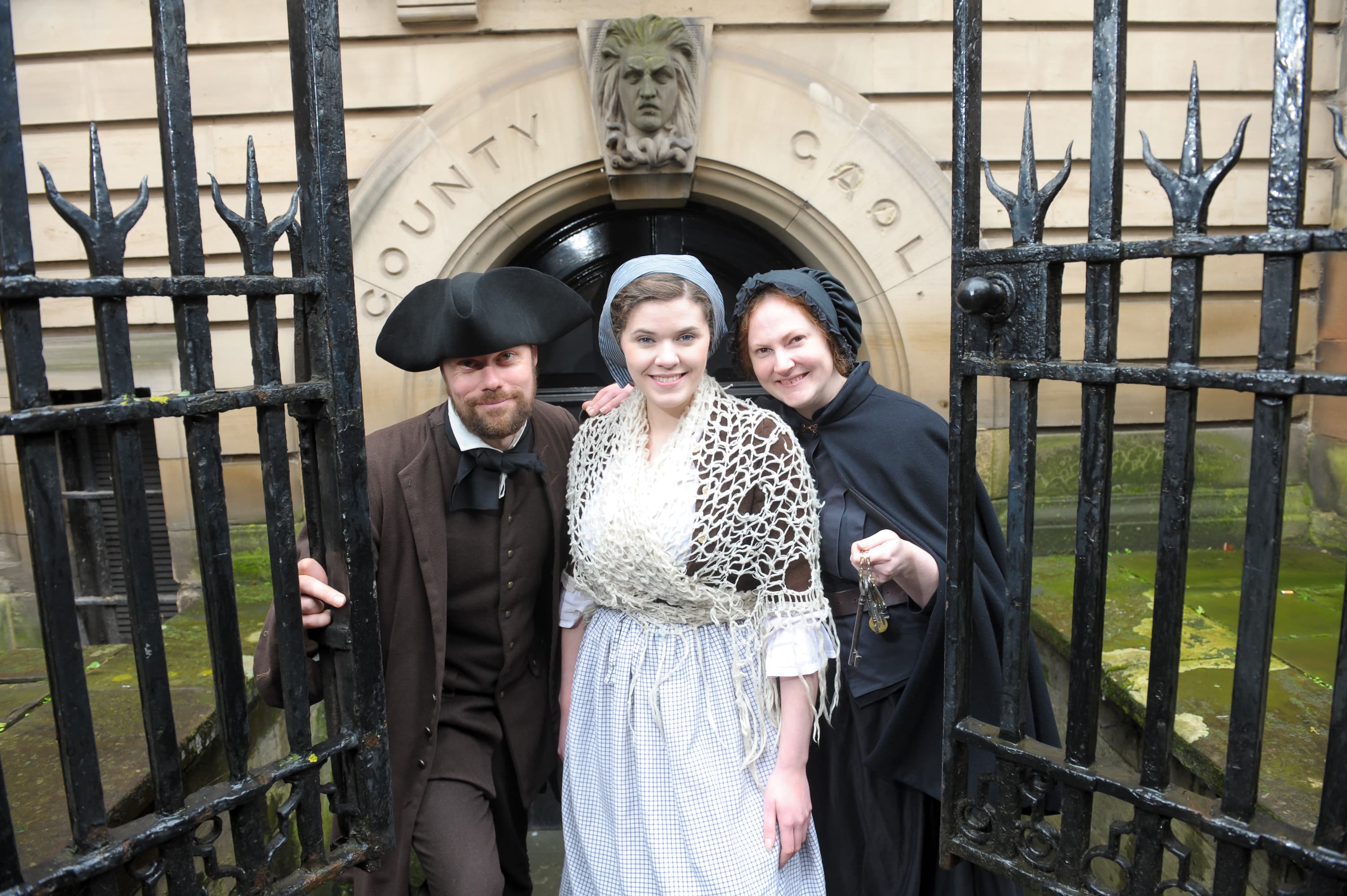
National Justice Museum is awarded a £249,996 grant by The National Lottery Heritage Fund
The funding will allow the iconic Nottingham venue to create new job roles, deliver more workshops across the country, and create a brand-new escape room attraction.
Read more
Immersive, site-specific performances come to the National Justice Museum for one day only
Four experimental performances will be scattered throughout the historic gaol for curious visitors to find
Read more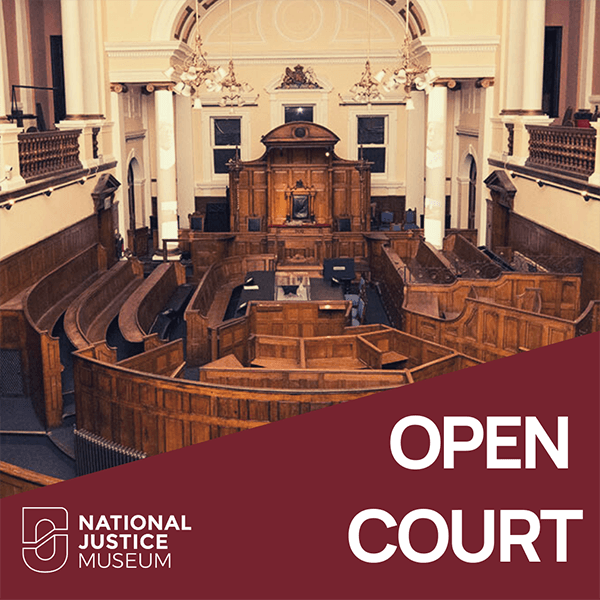
National Justice Museum's Open Court podcast back for a second season
Retired Judge and former Barrister John Burgess leads a series of interviews taking you behind the scenes of the Justice system
Read more
Family devastation brought closer to home in knife crime prevention workshops
The heart-breaking accounts of Nottinghamshire families who lost loved ones to knife crime will be added to an award-winning workshop.
Read more
National Justice Museum announce recipient of £1000 photography award
The National Justice Museum has announced the recipient of a £1000 prize as part of their Freedom photography exhibition. The award includes a creative residency at the National Justice Museum in 2023 with a £1,000 budget, decided by a panel of esteemed and expert photographers Brian Griffin, Amanda Sinclair, and Ofilaye.
Read more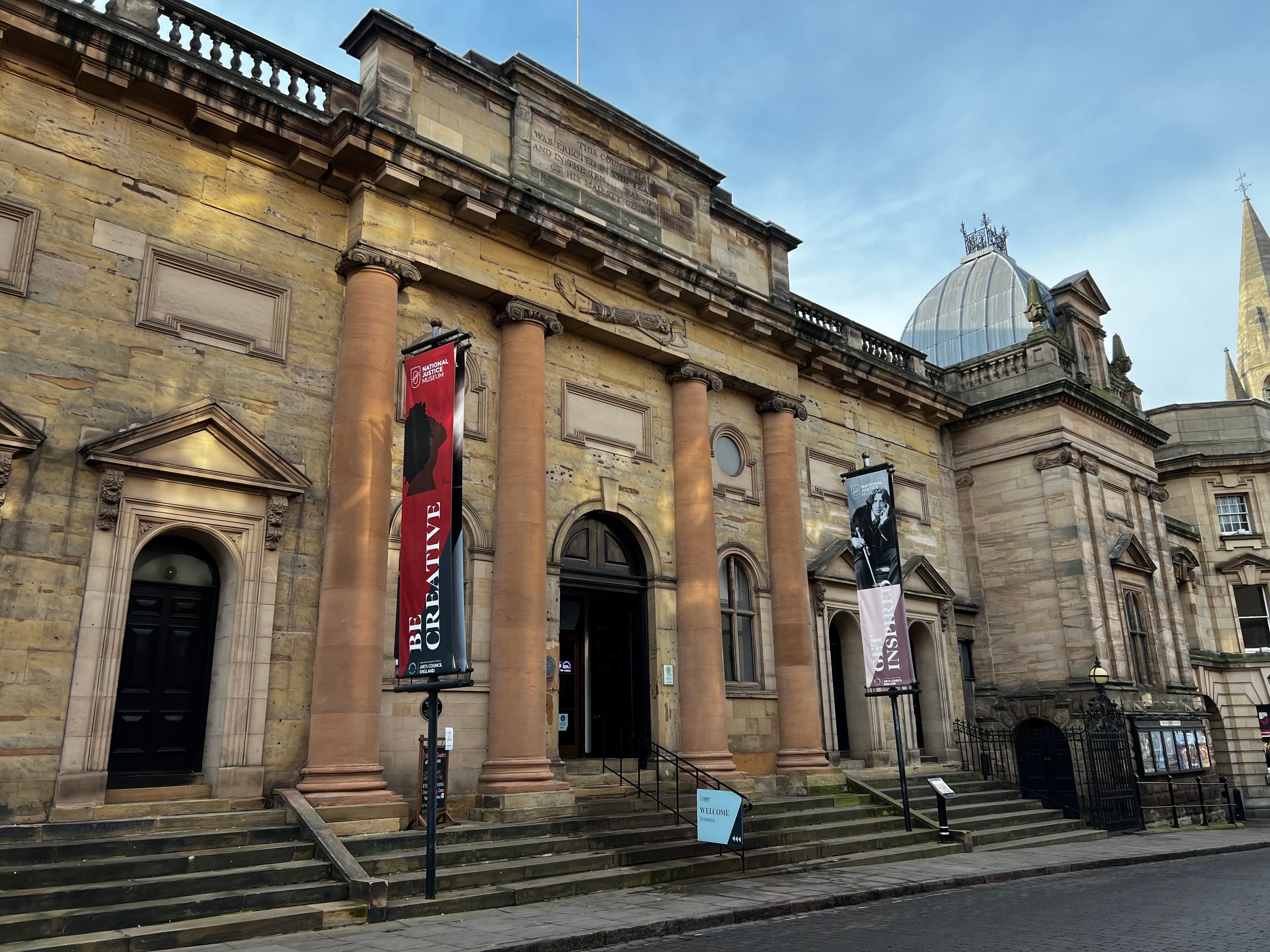
National Justice Museum recognised as one of England’s outstanding cultural organisations through Arts Council England’s National Portfolio
The scheme highlights leading arts and heritage organisations in the country and comes with over £700,000 of investment for the Lace Market venue
Read more
National Justice Museum’s new open-call photography exhibition, Freedom, to open in November
The exhibition opens on Saturday 12th November and will feature over 200 black and white images submitted by the public
Read more
The National Justice Museum explores untold stories of Black presence
Tours, events, and displays are planned throughout October in the culmination of months of research into Black presence at the historic site
Read more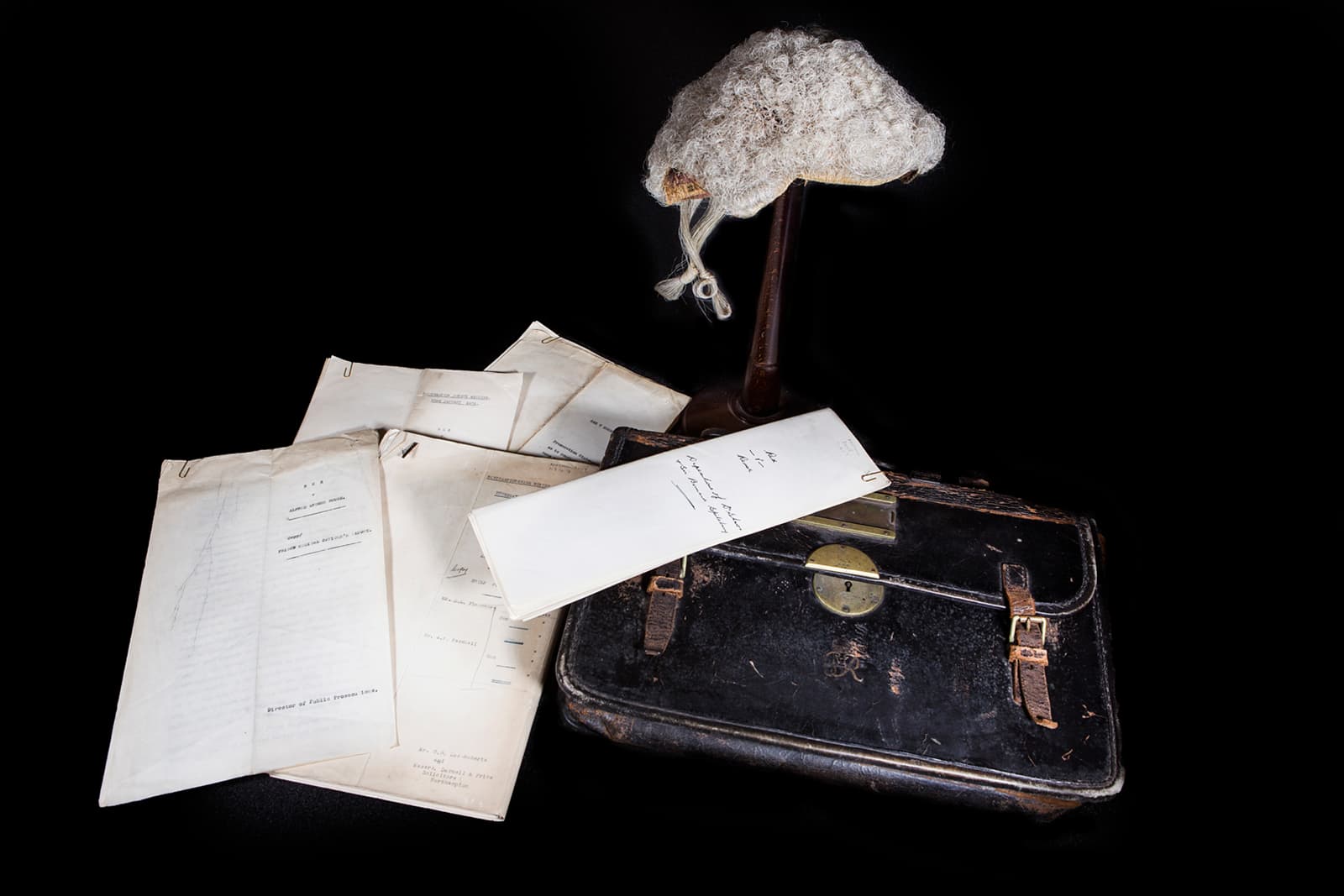
National Justice Museum opens call out for object donations from Black Legal Professionals
The National Justice Museum is looking to expand its collection to reflect the diversity within the legal profession, and to share the lived experiences and the contributions made by Black legal professionals.
Read more
National Justice Museum announces judges for Freedom photography competition
World world-renowned photographer, writer and director Brian Griffin leads a panel of judges for the National Justice Museum’s open call photography exhibition on the theme of Freedom. Griffin, along with fellow judges Amanda Sinclair and Ofilaye, will choose from hundreds of applicants to award a creative residency at the National Justice Museum in 2023 with £1,000 budget for the lucky winner.
Read more
National Justice Museum Wins 2022 Tripadvisor Travellers’ Choice Award
National Justice Museum today announced it has been recognised by Tripadvisor as a 2022 Travellers’ Choice award winner. The award celebrates businesses that have received great reviews from travellers around the globe on Tripadvisor over the last 12 months. As challenging as the past year was, National Justice Museum stood out by consistently delivering positive experiences to travellers.
Read more
Rolls Building Art and Education Trust & The Technology and Construction Court Art Competition
2023 is the 150th anniversary of The Technology and Construction Court (TCC), a major specialist Court that deals with disputes about building, engineering and all kinds of technology including software. The TCC is based in the Rolls Building, a spacious and modern courthouse in London's legal heartland.
As part of the anniversary celebrations, there will be a competition for young artists. Entries can be 2D artworks in any medium (except exclusively photography) and relate to the themes of Construction or Technology.
Read more
National Justice Museum opens submissions for photography exhibition with a £1,000 prize at stake
The call out is open to photographers from around the UK, from professionals to amateurs
Read more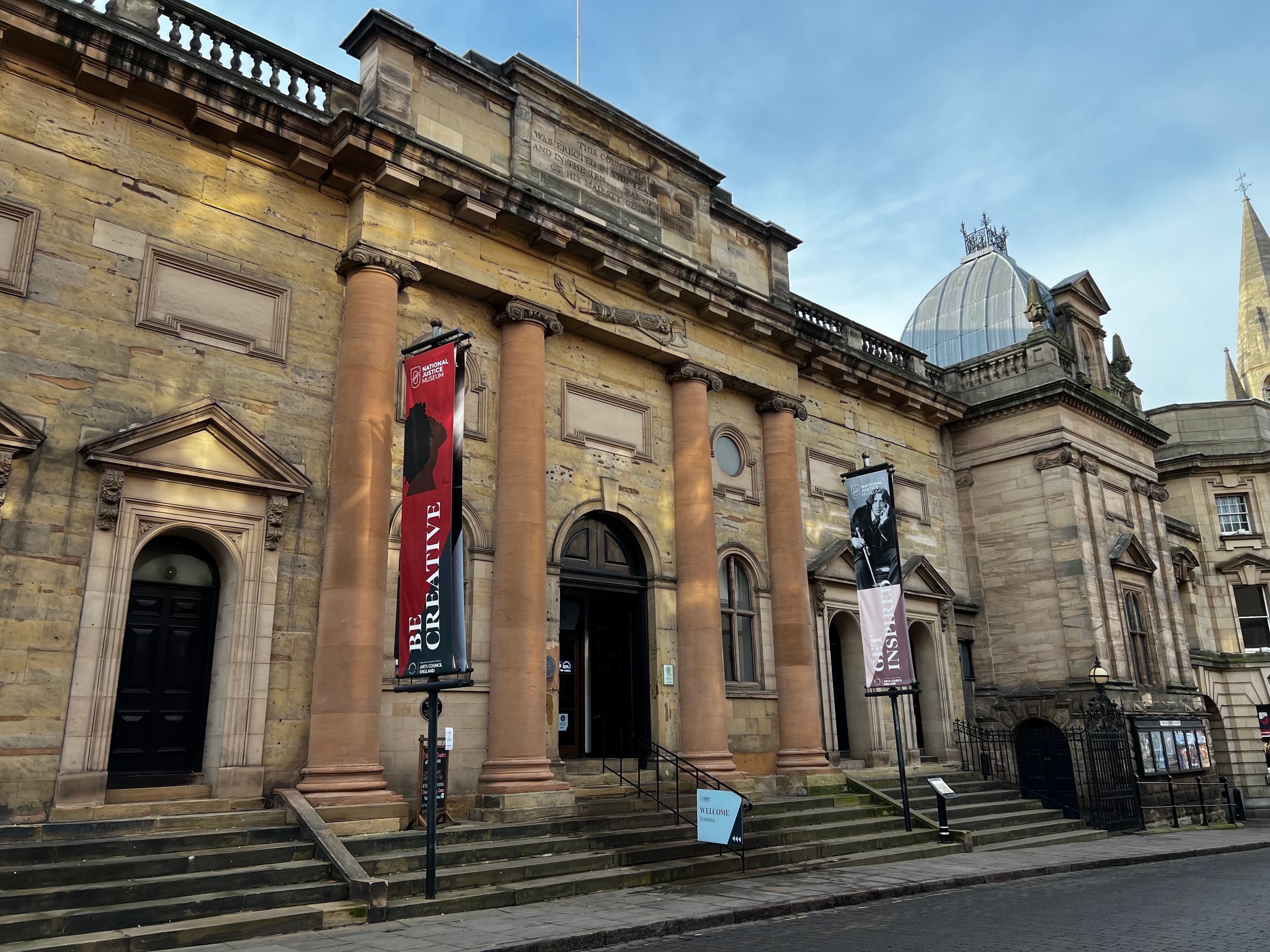
National Justice Museum to receive £362,900 in fund which helps safeguard nation's cultural heritage
The National Justice Museum in Nottingham has been awarded a grant of £362,900 by the Department for Digital, Culture, Media and Sports, delivered by Arts Council England.
Read more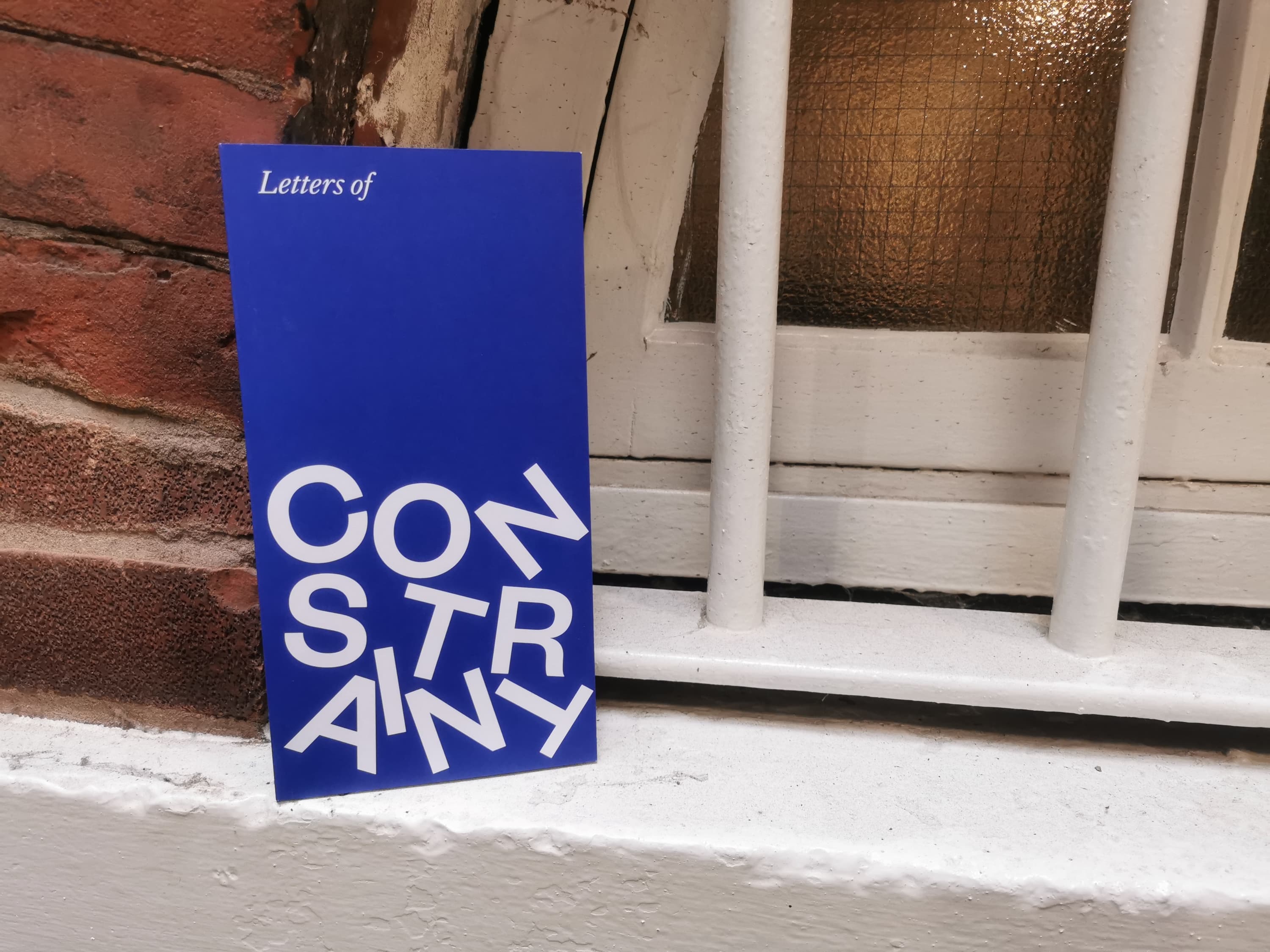
The National Justice Museum publishes Letters of Constraint
The newly released book is an intimate collection of letters and diary entries from lockdown
Read more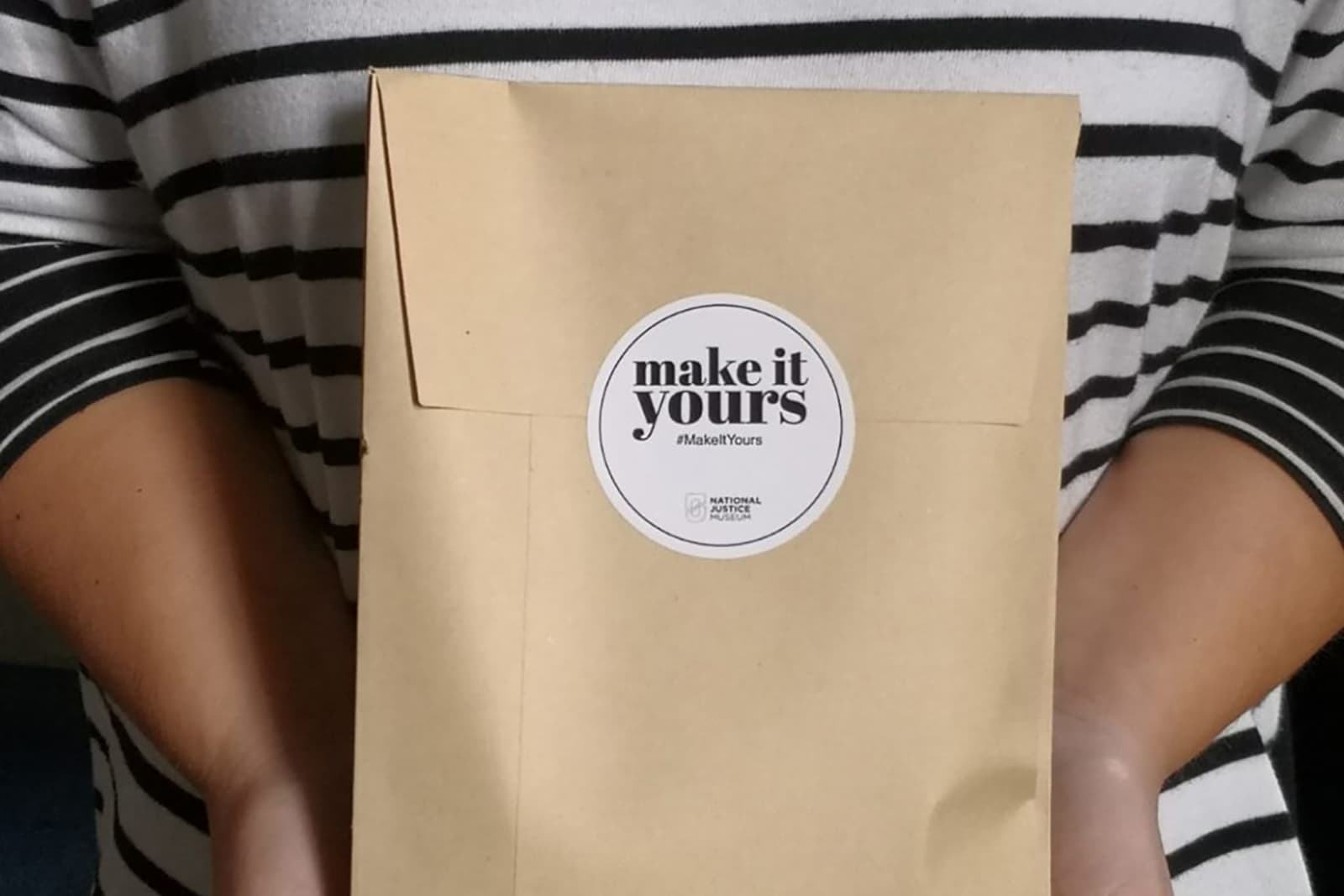
National Justice Museum wins Best Museums Change Lives Project at Museums Change Lives Awards 2021
The National Justice Museum has been awarded the Best Museums Change Lives Project at this year’s Museums Change Lives awards for our Make it Yours: Workshops in an Envelope project.
Read more
Welcome back S.H.E.D!
For two weeks in August 2021 summer, the National Justice Museum hosted a variety of exciting events, film screenings, talks and activities as part of S.H.E.D - the Social Higher Education Depot.
Read more
‘Freed Soul’ letters
For Women’s History Month 2021, we’re sharing a collection of Charlotte Bryant letters from our archives.
Read more
Justice week 2021
An interview with His Honour Judge John Burgess about the impact of COVID-19 on legal proceedings in Nottingham.
Read more
Ghost stories with Claire
We catch up with our former ghost tour extraordinaire Claire Finn to see whether she has any spooky stories to tell.
Read more
Autism and me
Michael, one of our educational facilitators at the National Justice Museum tells up about the positives of being Autistic.
Read more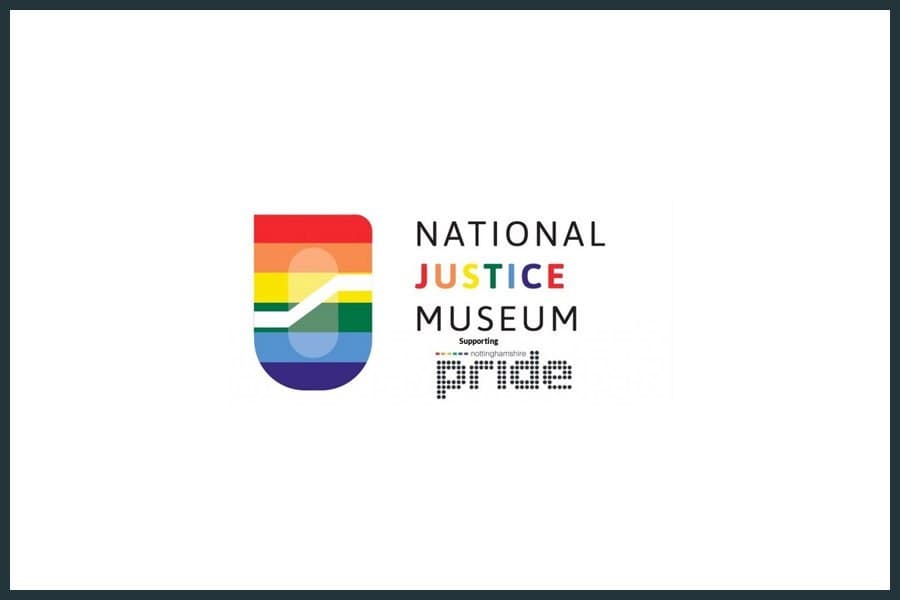
Staying proud
With so many changes within legislation and human rights, the question has emerged in recent years; why is Pride still relevant?
Read more
Ultimate travel list
We’re delighted that the National Justice Museum has been chosen as one of the 500 top experiences and hidden gems in Great Britain.
Read more
The ‘Bloody Code’?
The Bloody Code imposed the death penalty for over 200 offences – many of which were surprisingly trivial.
Read more
Sandford award
Nottingham’s National Justice Museum has received a prestigious Sandford Award for Heritage Education.
Read moreWe like to keep in touch…
Stay bang up to date with all that’s happening at the National Justice Museum by signing up for our free newsletter, sent straight to your inbox.




